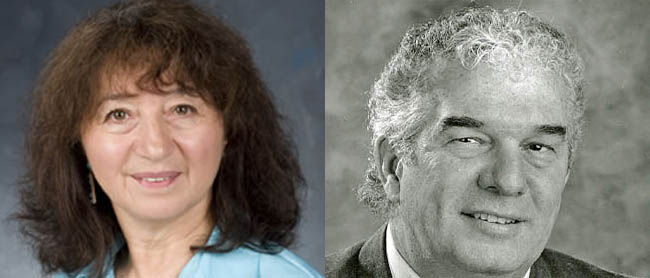Mother Earth – First Nations – last chances!

By Peter Globensky and Beverly Sabourin
MOTHER EARTH – FIRST NATIONS – LAST CHANCES!
When the last tree is cut, the last fish is caught, and the last river is polluted; when to breathe the air is sickening, you will realize, too late, that wealth is not in bank accounts and that you can’t eat money.
– attributed to Alanis Obomsawin – Abenaki
One of the most valuable lessons we were taught as kids was that our actions produced consequences. This learning exercise was particularly helpful when it came to harmful activities. If we read under the covers until we finished that book, we would be drag-butt tired the next day. If we put our hand on a hot wood stove, we quickly and painfully learned not to repeat that practice. In every case it was the immediacy of the consequence that taught us the lesson. Maybe that is why we have a hard time believing that there will be any negative consequences to our actions in the way we harm Mother Earth. At the top of that rather long list of harmful actions – from polluting the water and air which sustain our lives to the depletion of our natural resources, is our dependence on fossil fuels. They produce the greenhouse gases which are now, without doubt, warming our planet. That evidence is now substantial and we are already witness to the effects of Mother Earth’s lessons on consequence. Extreme weather events are now and will be more frequent and intense. Ice cover in the Canadian north is thinning and decreasing in area, and the length and stability of winter roads will be a “convenience” of the past. The impact on northern and isolated indigenous communities in Canada will become more pronounced due to a rapidly warming climate. The northern boreal will recede, eventually replaced by aspen grasslands. The tundra will diminish and the permafrost will begin to melt and heave. All of this will result in the displacement of flora and fauna. The polar bear will struggle, migration routes of both animals and birds will change, altered by changing weather. New, very different ecosystems will emerge. Aboriginal people will be stewards of a very different landscape and will be forced, if they are able, to adapt to a very different environment.
There is a terrible irony in all of this. Aboriginal Traditional Knowledge (ATK) is now so highly regarded that it is a required, fundamental part of any environmental assessment process where the traditional rights and lands of indigenous people may be impacted. ATK to quote the Canadian Environmental Assessment Agency, “is a body of knowledge built up by a group of people through generations of living in close contact with nature. ATK is cumulative and dynamic. It builds upon the historic experiences of a people and adapts to social, economic, environmental, spiritual and political change.” The irony here is that the changes wrought by global warming will be so fundamentally broad and widespread that the knowledge of previous generations will carry little meaning in the new landscape. The migration and calving habits of caribou known by communities for generations will be of little use, if there are no longer any caribou!
Sometime back Peter was among a group of Canadians trained by Al Gore to make presentations on the dangers a warming climate could bring to Mother Earth. After a number of such presentations he concluded that no amount of education on the subject would be sufficient to confront the well-financed interests from the oil cartels. They have had the resources to buy off some willing “scientists” leading to the publication of junk science whose sole purpose is to cast doubt on the role of fossil fuels in warming the earth. Of course, they were aided and abetted by the Stephan Harper government whose commitment to making Canada an energy-superpower left them both blind and dumb (in every sense of that word) to the rapidly mounting evidence of a warming planet that they were and are consistently ignoring. Why do Conservatives not know how to conserve?
Should the Paris talks on Climate Change not produce a realistic, binding and necessarily ambitious agreement to significantly reduce carbon emissions from the burning of fossil fuels; if we continue to blunder along with our business-as-usual approach to ignoring the consequences of our actions, then Mother Earth will produce consequences and have the last words – the ones we will all hear before the cries of First Nations and Inuit communities across Canada lamenting the loss of their culture so dependent on an ancient landscape drastically altered by global warming.
DIFFERENT PATHS – COMMON GROUND
Beverly Sabourin, recently retired as the Vice-Provost of Aboriginal Initiatives at Lakehead University, is a member of the Pic Mobert Ojibwe. Peter Globensky is a former senior policy advisor on Aboriginal Affairs in the Office of the Prime Minister and recently retired as CEO of the Canadian Council of Ministers of the Environment. They invite your comments at basa1@shaw.ca


